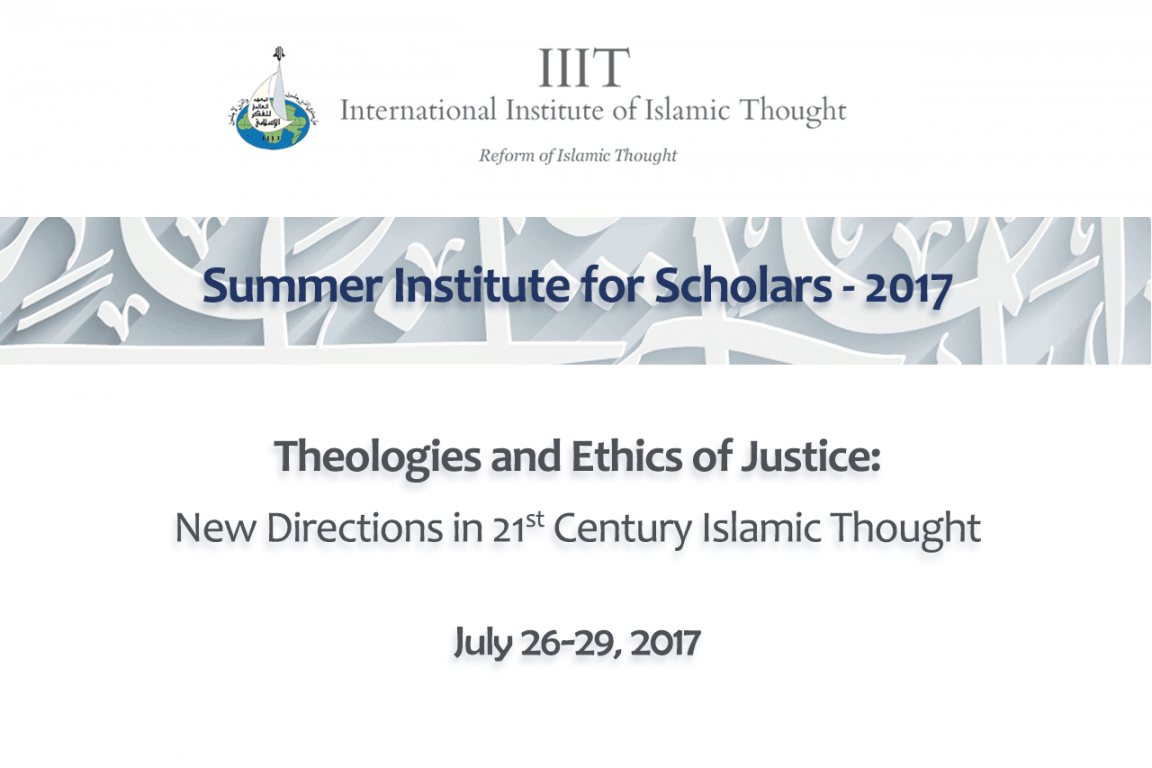Theologies and Ethics of Justice

About The Event
New Directions in 21st Century Islamic Thought
The 10th Annual Summer Institute for Scholars
Date: July 26-29, 2017
Venue: Herndon, VA 20170, USA
Recent debates within the Muslim community on issues of political legitimacy, loyalty and obedience in the aftermath of the Arab Uprisings, as well as on racial justice and discrimination in Western societies, deepened the demarcation between the individualist/moralist emphasis on personal responsibility/conscience and the structural approaches to social and political issues. They further exposed the blind spots within Muslim theology and ethics – including most, if not all, schools of thought – with regard to structural injustices and their relation to dominant political powers which some theologians privilege over the oppressed and the underdog. Authority and power are thus given a pass, while the disadvantaged is lectured about personal responsibility and morality.
Furthermore, the hierarchical approaches to ethics, derived from peculiar understandings of classical concepts, separate Muslim community into different classes of people, hence lending religious legitimacy to some sort of discrimination. The net result is support for dictatorial/despotic regimes and silence in front of grave abuses against human rights and rightful aspirations of many, especially young people, in Muslim societies and communities.
On the other hand, contemporary quest for justice – at least in the dominant, Western-based, discourse – is derived from liberal philosophies and conceptions, and often expressed in identity terms: race, gender, ethnicity, sexuality. These concepts pose important questions to Islamic normativity and, in return, their usage within such a framework needs to be questioned as well. What is justice, who defines it, and what is the role of political power and discourses in these processes – all these questions need to be investigated carefully. Another important issue is related to addressing past injustices and grievances through either affirmative action or personal responsibility.
IIIT’s Summer Institute will provide a scholarly setting where such discussions will take place, with the aim of generating new knowledge and perspectives in contemporary Islamic thought.
Call for papers
IIIT Summer Institute for Scholars 2017 aims at addressing these issues, unpacking the categories mentioned above, and calls for papers that will contribute to developing theologies and ethics of justice for 21st century Islamic thought. Papers could come from a variety of disciplines and fields, including theology, philosophy, ethics, law, education, humanities and social sciences. The Summer Institute welcomes papers written from theological/normative as well as critical and social science perspectives. It’s particularly interested in studies that integrate normative and humanistic/social science approaches.
Topics include, but are not limited to, the following:
- Epistemology and theologies of justice
- Islamic philosophy of values
- Role of Islamic education in promoting theology and ethics of justice
- Axiology and praxeology in Islamic thought and implications for justice discourses
- Hegemonic international discourses and their relation to values and despotism
- Synthesis between individual responsibility and structural causes of oppression
- Theologies of the oppressed (al-mustad’afun)
- Limits and overlaps of Islamic and liberal values
- Hierarchy and equality in Islamic thought
- Legitimacy, loyalty, obedience, and dissent
- Racial justice and Islamic thought
- Gender justice and Islamic normativity
Special lectures
IIIT’s Summer Institute will invite prominent scholars to give keynotes and participate in the proceedings. Their names will be announced soon.
Source: The International Institute of Islamic Thought (IIIT)
Location
Herndon


We're always eager to hear from you.
If you’d like to learn more about us or have a general comments and suggestions about the site, email us at